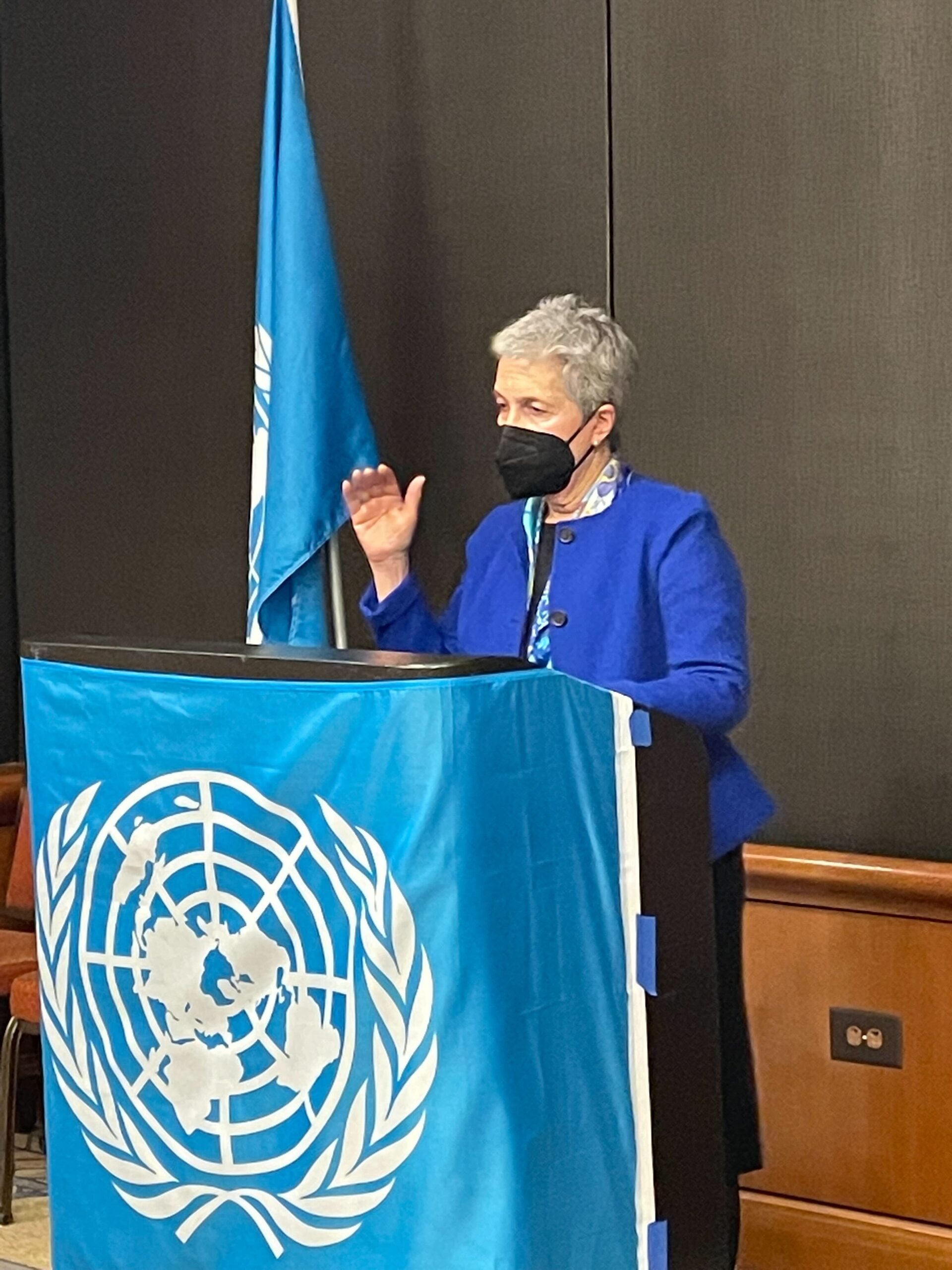
Information, Intelligence and Smart Power

Professor Ellen Laipson teaches Information, Intelligence and Smart Power as a graduate class at George Mason University. This also well summarizes many of the points that Professor Laipson addressed in her Keynote Speech during the 2022 Opening Plenary, as well as afterward in a question and answer period with the International Press Delegation (IPD).
While she highlights the many pressing, even dangerous challenges facing the world today, Professor Laipson looks forward to youth participation in the information age, specifically seeing the capability for increased connections/networking among people to enact change.
She further advised the delegations (and people interested in diplomacy) to actively work together and compromise, and, perhaps, even politely call upon people to come together for multilateral approaches to global problems, even if a delegation might have some contrasting views at home. Member States at the UN really look to address global problems, and it can often be less controversial and less political than in the political capitals.
In her follow up questions with IPD, Professor Laipson talked about the need to return to an age of trusting science and facts, in particular with climate change at the forefront of international politics. She calls upon States to be more proactive in living up to their UN commitments on climate. She calls upon people across the world to trust the news media, while learning how to interpret data and accept facts. Finding good sources for information becomes crucial to operating both domestically and internationally in policy.
More positively, she references the consistent work across the world on UN Sustainable Development Goals (SDGs), in particular the use of the SDGs scorecards. She admires the scorecards because it tracks progress as a series of benchmarks rather than a pass/fail grade for achieving your goals. Most importantly, Professor Laipson encourages people to not be frustrated by a perceived lack of action or to take an absolutist approach. Policymaking and diplomacy require compromise, and incremental approaches really do make change. Celebrating small positive changes and compromising to achieve some of our goals is certainly a sentiment that we could use more of globally.

Keep Up With The Accords
More to read
The AMUN Accords is a premier resource for fact-based Model United Nations simulations. We are always looking for new contributors. Want to write for the AMUN Accords? Check out out the submission guidelines and then get in touch!




